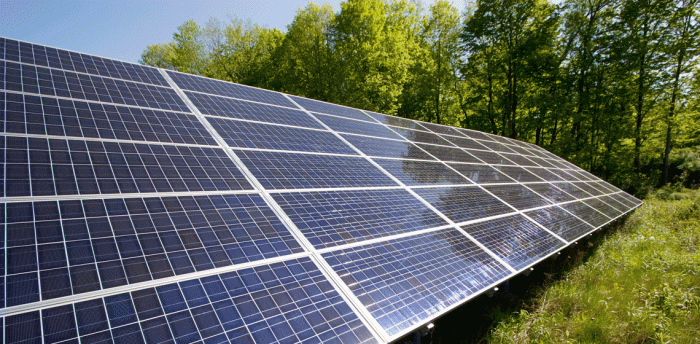Memphis says no to new gas in favor of solar power
In a win for West Tennessee communities, Memphis Light Gas and Water scrapped a proposal to build new dirty gas plants and says it will instead invest in solar power and battery storage. At a time when utilities across the South, including the Tennessee Valley Authority, are planning to spend billions on fossil fuel plants and pipelines, MLGW’s pivot to clean energy provides a roadmap to the clean energy transition.
We hope this will inspire other utilities to ditch their dirty gas plants and do what is just, fair, and equitable for our people, our environment, and future generations.
KeShaun Pearson, Memphis Community Against Pollution President
The move comes after the local utility, which serves Memphis and the surrounding area, received significant public pushback over the proposal. Community groups like Memphis Community Against Pollution expressed concern about the financial burden the plants would put on customers and the environmental impacts of new fossil fuel infrastructure in Memphis.

“We are encouraged by MLGW’s decision to pursue a path toward clean energy. We recognize this positive first step in eliminating continued fossil fuel expansion,” KeShaun Pearson, President of Memphis Community Against Pollution, said. “Communities like ours in southwest Memphis have suffered for decades from the negative effects of pollution, including pollution from TVA’s coal and gas plants. This cycle of harm inflicted by environmental racism cannot continue.”
The decision to invest in solar instead of fossil fuels marks a major victory for a city on the front lines of environmental and climate injustice.
Families in Memphis, especially in predominantly Black communities in south Memphis, are overburdened with more than their fair share of industrial pollution. Dozens of pollution-emitting facilities surround the area, creating decades of ongoing air pollution problems and leading to increased rates of asthma and cancer in nearby neighborhoods. Additional gas plants would have added to these pollution problems.
Renewables like solar also provide a more affordable alternative to new gas plants, which rely on unpredictable and expensive fossil fuel costs. This is especially important in Memphis, which has one of the highest energy burdens in the country. Energy burden measures the percentage of a family’s income that goes toward power bills, and in Memphis 94,000 households face a ‘severe’ energy burden of more than 10 percent.
“MLGW’s decisions to scrap its gas plans in favor of renewables should serve as an example for utilities across the region,” SELC Senior Attorney Amanda Garcia said. “Now community groups and local utility leaders can focus on finding ways to increase energy efficiency and lower energy burdens on Memphis families instead of fighting over outdated fossil fuel infrastructure proposals.”
“We hope this move by MLGW officials will inspire other utilities to ditch their dirty gas plants and do what is just, fair, and equitable for our people, our environment, and future generations,” Pearson added.
MLGW’s decisions to scrap its gas plans in favor of renewables should serve as an example for utilities across the region.
Amanda Garcia, Senior Attorney
These communities are experiencing the impacts of climate change as well. Memphis recently faced record-setting heatwaves, and last winter freezing temperatures and ice storms left some neighborhoods without access to water or power for days. These climate-change-driven events had outsized impacts on lower-wealth areas and communities of color in south Memphis.
Investing in solar power and batteries will create a more reliable grid without emitting dangerous greenhouse gases that worsen the impacts of climate change.
